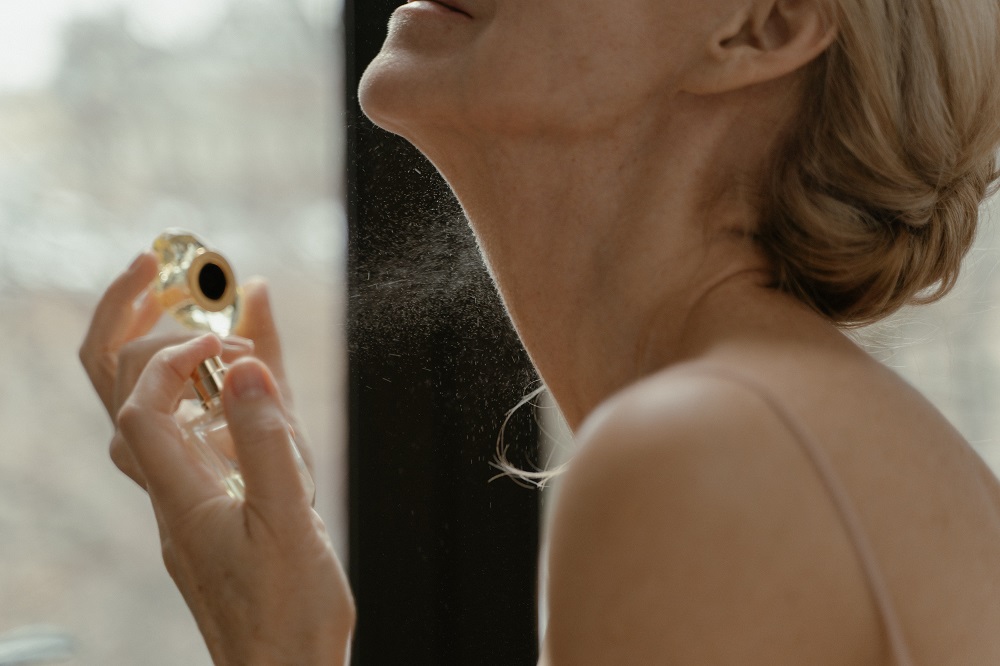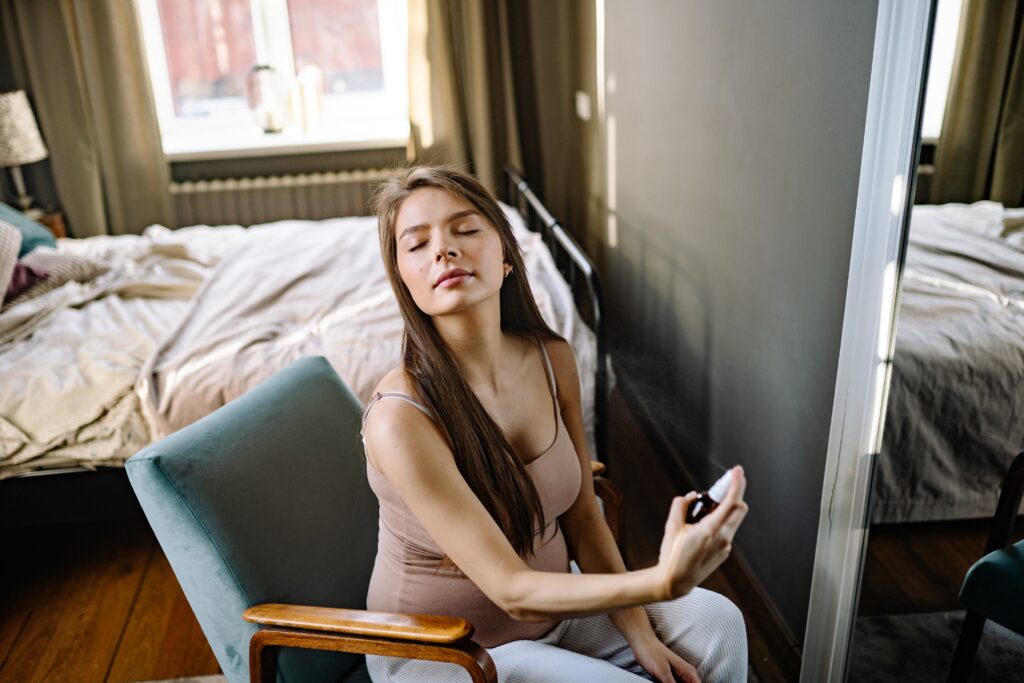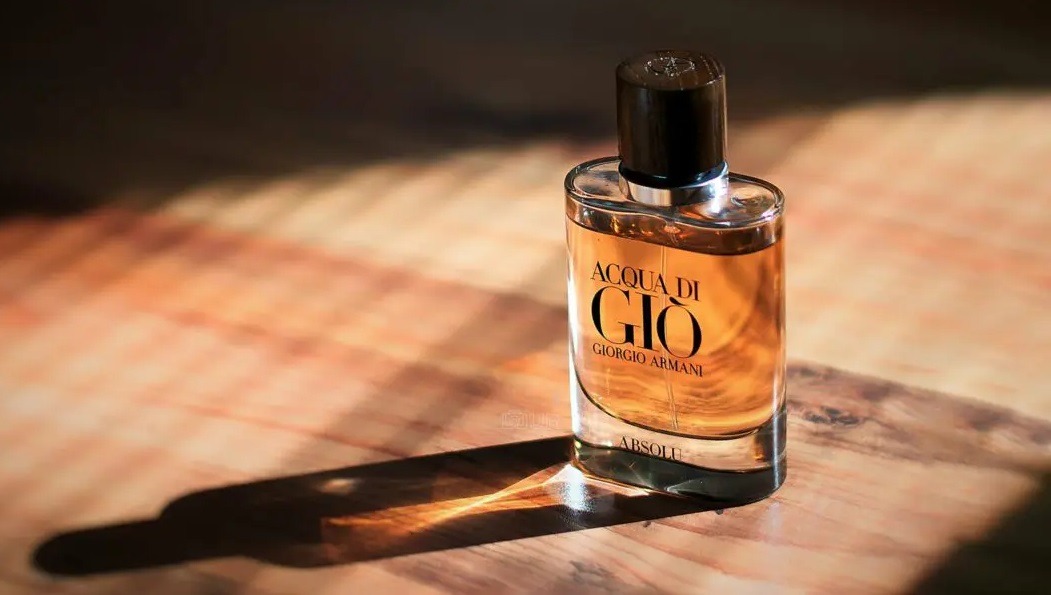ScentForMe unique guide to finding your signature scent, the perfume smell that suits you. Every person loves the idea of having a signature scent. But getting there is challenging since it can be difficult to find a signature scent. Choosing one you enjoy is the simplest way to discover your distinctive aroma.
Using perfume descriptions to judge whether a scent appeals to you is pointless. For instance, the perfume description reads, “Our inspiration was a boudoir where dragons reproduce, and their saliva makes a chypre musk. You’re left wondering what the writer of this perfume was smoking when we wrote this.
Page Contents:
- Choose three Perfumes to test out
- Learn about Fragrance Families
- Start with the lighter scent first
- Try out some samples
- Avoid the Coffee Beans
- Observe the changes in the smell after a few hours
- Differences between scents vs cost of the perfume
- How long does the scent last?
- Spray Perfume in your hair
- Emotions
- Wearing Instructions
- Final thoughts
But if you need clarification on the distinction, don’t worry. Here are nine quick suggestions or guidelines for developing your sense of smell, listening to your gut, and choosing a distinctive perfume for yourself.

Only three perfumes at a time. (otherwise, your sense will get confused)
At first, smell everything, especially if you don’t know what you enjoy. Raymond King from ScentforMe, advises you to keep your explorations to only three odours per trip. “Your olfactory bulb is working harder than it usually does. So give each scent its due consideration.
Start by learning about fragrance families.
When you listen to something, you want to know if it’s hip-hop or baroque; it’s beautiful to know what sounds floral, fresh, or woody. Although some perfumes straddle multiple fragrance families, being aware of the notes you prefer will help you swiftly focus on searching for a trademark scent for yourself. Fresh perfumes are frequently lemony and lighter, while floral aromas are typically more feminine and mature. Spicy scents generally are warmer and sultrier.
It would help if you started with a lighter scent first.
Studies have shown that 50% of people can’t even smell musk. Therefore it’s preferable to begin with more aquatic scents first. Aqueous scents (like Acqua di Gio) are fresher. Muskier fragrances are reminiscent of leather books or have woodsy and earthy aroma impressions. We suggest starting with aquatic scents, moving on to fruit floral flavours, and then muskier perfumes.

Get some samples and see if you like them.
If you keep returning to get more samples and enjoy it, the smell lures you back. To determine how the fragrance will smell, ask for a sample bottle and spray it on your skin. When testing it out, apply perfume to the tops of your hands, wrists, or elbow crook. These are locations on the human body that are not routinely cleaned.
Check every twenty minutes to see how I feel about it and if you still enjoy the aroma. As you probably know, perfumes contain various fragrances, and certain scents die out after a few minutes to a few hours. Something that may smell nice when spraying it on may smell terrible a few hours later.
Don’t be hard on yourself if you don’t enjoy the smell of oud or other foreign aromas.
Everyone talks about how much they love oud, like kale, but don’t worry about it if you don’t. Favourite fragrances are frequently influenced by familiarity. It’s not that you don’t enjoy an OUD if you’ve never smelled one before; your nose is just getting used to it. But, when you apply the perfume, do you experience headaches? Does it give you the feelings you desire to have? As you test out different fragrances, ask yourself these questions and answer truthfully.
Avoid using coffee beans to alter your senses.
Every perfume business typically has coffee beans nearby. Any employee will tell you this is the case since sniffing them “resets” your scent indications.
However, scent experts claim this is a traditional perfumer’s tale. “It’s another strong scent,” they say. Smell it yourself instead. “Place your nose in your elbow, which is unscented. It truly does work. Your nose gets reset by something in your fragrance.

Observe the changes in the smell after a few hours.
In the language of scents and perfumes, the “top note” and “dry down” of the fragrance are frequently compared to the “legs” of a wine.
Fragrances are living things that change with time. The fragrance’s top note, which lasts for around 20 minutes, is what you notice immediately. The heart or base notes beat for approximately four hours, or the better portion of the day.
Recognise the differences between scents that cost R300 and R3000. (ZAR)
Cheaper perfumes typically have very, very strong top notes at first. Others might say it smells a little “metallic.” Fragrances that cost more often have a heart and dry down that are complex and tend to linger longer.
Consider how long you would like it to last.
Before proceeding to the checkout counter, it’s critical to understand the distinctions between Eau de perfume, Eau de toilettes, and other fragrances while you peruse department stores. These names refer to the fragrance’s potency, correlated with its lifespan and retail cost.
Eau fraiche typically lasts less than an hour and contains one to three per cent diluted perfume oil. Eau de cologne lasts as long as two hours and includes two to six per cent oil. Eau de toilette lasts around three hours and can contain between five and fifteen per cent oil. According to King, Eau de Parfum, the usual strength of perfumes includes 15 to 20 per cent oil and has a five – to eight-hour wear time. Then there is pure Parfum, which may last up to 24 hours and contains anywhere from 15 to 40 per cent oil.

Spray the perfume on your hair.
Not the kind of item marketed as a hair perfume. You eventually discover a scent you enjoy. Spraying it in your hair is an option that a hairdresser may not recommend because most fragrances include alcohol, but perfumers recommend it.
Think about the emotions you want your trademark perfume to evoke.
Do you intend to sound playful? Do you desire a sexy sensation? Consider this while you alternate between the leather accord and peony fragrances.
According to Raymond King, “It should make them into their ideal selves, this sense of being acknowledged with a drop of aspiration.” “When you apply the fragrance, it should feel like both who you are and who you want to be, not just who you are.”
Finding The Perfect Fragrance: Wearing Instructions
Deodorants, lotions, and powders with strong scents will interact with perfume, changing its aroma and staying power. Choose complimentary toiletries that will go nicely with your smell and never clash. The middle of the neck, behind the ear, inner wrists, and behind the knee are good places to apply perfume for the best results. If you put it in at least one of these locations, you won’t need to reapply perfume during the day. Instead, try spraying the perfume into the surrounding air and strolling through it for a milder smell. Additionally, avoid spraying perfume on clothing and use it exclusively on your skin.
Final thoughts
These pointers should assist you in identifying your unique, distinctive scent. Do you currently possess one? Please share it with us and tell us about the notes and fragrance families. Also, tell us about the best-smelling folks you’ve ever met! I wish this blog had a scratch-and-sniff feature, though!

